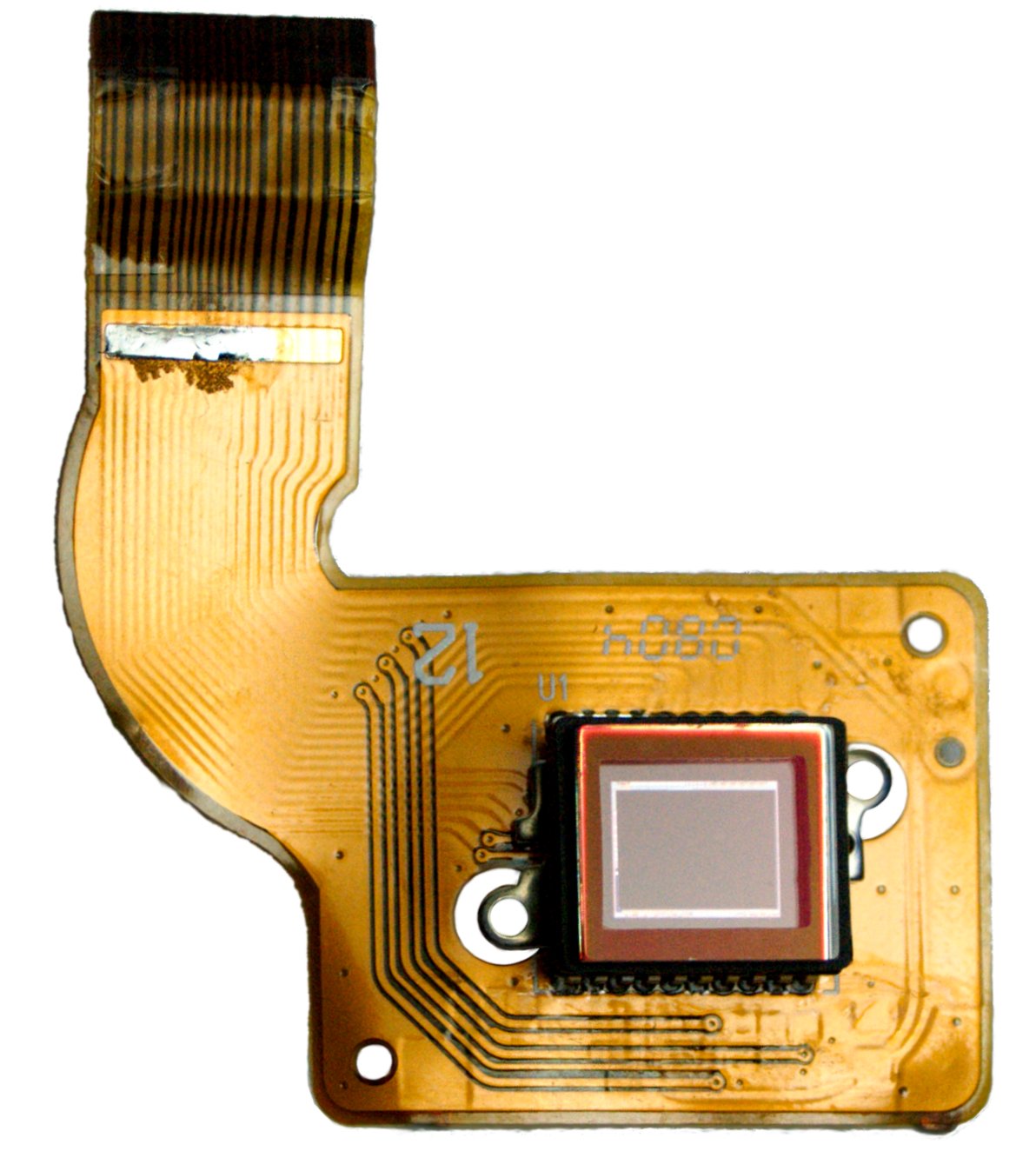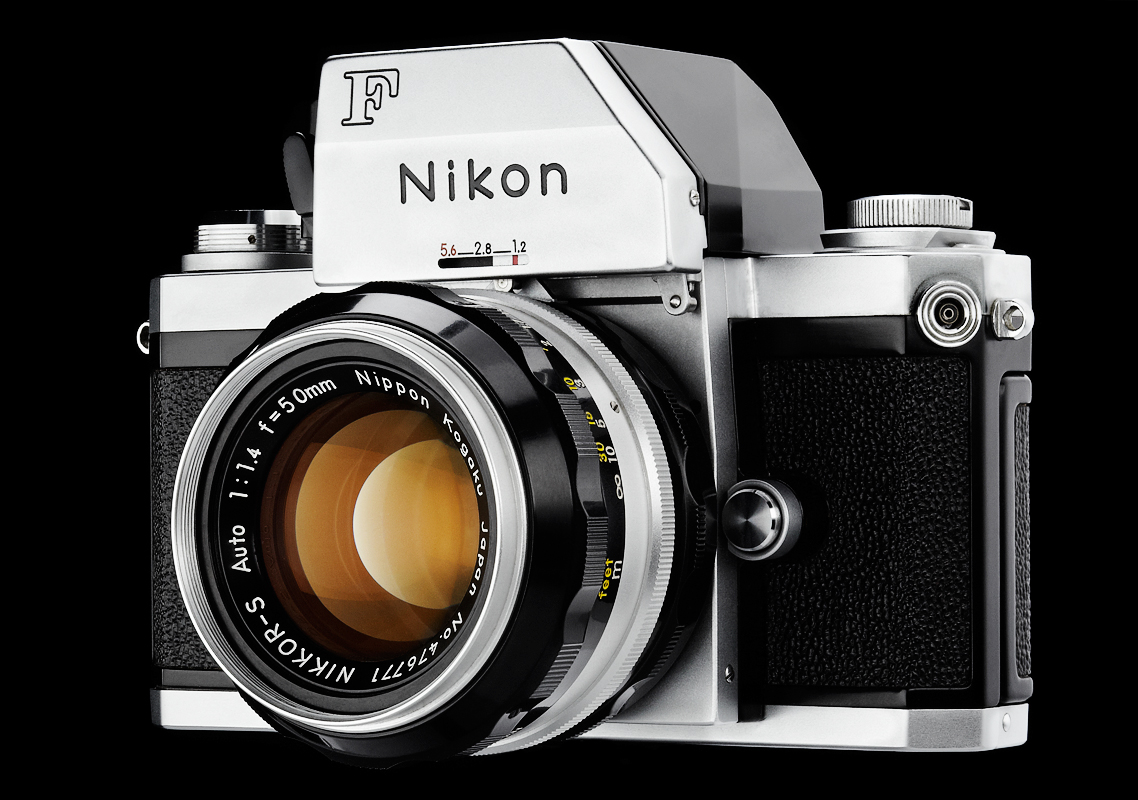|
Nikon V2
The Nikon 1 V2 is a Nikon 1 series high-speed mirrorless interchangeable-lens camera launched by Nikon on October 24, 2012. Featuring a new 14 megapixel image sensor and further increased autofocus (hybrid autofocus with phase detection/contrast-detect AF and AF-assist illuminator) speed to 15 frames per second (fps), the maximum continuous shooting speed stays at 60 fps for up to 40 frames. The image processor Expeed 3A, a successor to the Expeed 3 used in the former Nikon 1 series cameras, features a new (according to Nikon) image-processing engine with increased speed of up to 850 megapixels per second. It is developed exclusively for Nikon 1 cameras. The Nikon 1 V2 succeeds the Nikon 1 V1 and is succeeded by the Nikon 1 V3. The Nikon 1 V3 improves on the previous model with an 18.4MP sensor, built-in Wifi, FullHD video at 60 frames per second (non-interpolated), up to 120 frames per second video at 720p resolution, 20fps continuous AF, and 171 focus points, which Nikon clai ... [...More Info...] [...Related Items...] OR: [Wikipedia] [Google] [Baidu] |
Nikon
(, ; ), also known just as Nikon, is a Japanese multinational corporation headquartered in Tokyo, Japan, specializing in optics and imaging products. The companies held by Nikon form the Nikon Group. Nikon's products include cameras, camera lenses, binoculars, microscopes, ophthalmic lenses, measurement instruments, rifle scopes, spotting scopes, and the steppers used in the photolithography steps of semiconductor fabrication, of which it is the world's second largest manufacturer. The company is the eighth-largest chip equipment maker as reported in 2017. Also, it has diversified into new areas like 3D printing and regenerative medicine to compensate for the shrinking digital camera market. Among Nikon's many notable product lines are Nikkor imaging lenses (for F-mount cameras, large format photography, photographic enlargers, and other applications), the Nikon F-series of 35 mm film SLR cameras, the Nikon D-series of digital SLR cameras, the Nikon Z-series of digital mi ... [...More Info...] [...Related Items...] OR: [Wikipedia] [Google] [Baidu] |
Image Sensor
An image sensor or imager is a sensor that detects and conveys information used to make an image. It does so by converting the variable attenuation of light waves (as they pass through or reflect off objects) into signals, small bursts of current that convey the information. The waves can be light or other electromagnetic radiation. Image sensors are used in electronic imaging devices of both analog and digital types, which include digital cameras, camera modules, camera phones, optical mouse devices, medical imaging equipment, night vision equipment such as thermal imaging devices, radar, sonar, and others. As technology changes, electronic and digital imaging tends to replace chemical and analog imaging. The two main types of electronic image sensors are the charge-coupled device (CCD) and the active-pixel sensor (CMOS sensor). Both CCD and CMOS sensors are based on metal–oxide–semiconductor (MOS) technology, with CCDs based on MOS capacitors and CMOS sensors based on M ... [...More Info...] [...Related Items...] OR: [Wikipedia] [Google] [Baidu] |
Nikon MILC Cameras
(, ; ), also known just as Nikon, is a Japanese multinational corporation headquartered in Tokyo, Japan, specializing in optics and imaging products. The companies held by Nikon form the Nikon Group. Nikon's products include cameras, camera lenses, binoculars, microscopes, ophthalmic lenses, measurement instruments, rifle scopes, spotting scopes, and the steppers used in the photolithography steps of semiconductor fabrication, of which it is the world's second largest manufacturer. The company is the eighth-largest chip equipment maker as reported in 2017. Also, it has diversified into new areas like 3D printing and regenerative medicine to compensate for the shrinking digital camera market. Among Nikon's many notable product lines are Nikkor imaging lenses (for F-mount cameras, large format photography, photographic enlargers, and other applications), the Nikon F-series of 35 mm film SLR cameras, the Nikon D-series of digital SLR cameras, the Nikon Z-series of digital m ... [...More Info...] [...Related Items...] OR: [Wikipedia] [Google] [Baidu] |
Nikon 1-mount
The Nikon 1-mount is a type of interchangeable lens mount developed by Nikon for its Nikon CX format mirrorless interchangeable-lens cameras. The 1-mount was first introduced on the Nikon 1 series in 2011, and features a bayonet mount. Compatibility to Nikon F-mount The F-mount adapter FT1 enables the use of all F-mount lenses especially with integrated autofocus motor. The FT1 adapter mounts and meters with all AI-P, AF, AF-S, D and G lenses and compatibles providing autofocus with all lenses with integrated autofocus motor. It further mounts Pre-AI, AI, AI-S and E lenses without metering as well as lenses which jut out the F-mount (needing mirror lock-up on cameras with mirror). Also although not recommended, it is used with teleconverters for extreme telephotos. Lenses Zoom lenses Power zoom lenses Prime lenses Third party lens Future lenses At the Nikon 1 launch in October 2011, Nikon showcased seven prototype lenses. As of October 2012, five of these prototype ... [...More Info...] [...Related Items...] OR: [Wikipedia] [Google] [Baidu] |
Nikon 1 V3
The Nikon 1 V3 is a digital mirrorless camera announced by Nikon on March 13, 2014. Compared to its predecessor, the Nikon 1 V2, it has a higher resolution sensor (18 megapixels, up from 14 megapixels), built-in Wifi, FullHD video at 60 frames per second (non-interpolated), up to 120 frames per second video at 720p resolution, 20fps continuous AF, and 171 focus points, which Nikon claims gives better tracking autofocus than even DSLR cameras. See also * Nikon 1 series * Nikon 1-mount The Nikon 1-mount is a type of interchangeable lens mount developed by Nikon for its Nikon CX format mirrorless interchangeable-lens cameras. The 1-mount was first introduced on the Nikon 1 series in 2011, and features a bayonet mount. Compati ... References *http://www.dpreview.com/products/nikon/slrs/nikon_v3/specifications Nikon MILC cameras V3 Cameras introduced in 2014 {{camera-stub ... [...More Info...] [...Related Items...] OR: [Wikipedia] [Google] [Baidu] |
Nikon 1 V1
The Nikon 1 V1 is a Nikon 1 series high-speed mirrorless interchangeable-lens camera launched by Nikon on 21 September 2011. The successor is the Nikon 1 V2 announced on October 24, 2012. The CMOS sensor from Aptina is used, it has 10.1 MP, CX format, die size 16.9x17.9 mm // Chipworks Recent Teardowns, November 4, 2011 which it is relatively similar with 1" sensor size. See also * * |
Expeed
The Nikon Expeed image processor, image/video processors (often styled ''EXPEED'') are media processors for Nikon dslr, Nikon's digital cameras. They perform a large number of tasks: Bayer filtering, demosaicing, image sensor corrections/dark-frame subtraction, image noise noise reduction, reduction, Unsharp masking, image sharpening, image scaling, gamma correction, image enhancement/Active D-Lighting, colorspace conversion, chroma subsampling, framerate conversion, image distortion, lens distortion/chromatic aberration correction, image compression/JPEG encoding, video compression, Electronic visual display, display/HDMI, video interface driving, digital image editing, face detection, Audio signal processing, audio processing/Audio compression (data)#Audio, compression/MP3, encoding and computer data storage/data transmission. Expeed's Multiprocessor, multi-processor system on a chip solution integrates an image processor in multi-core processor architecture, with each single pro ... [...More Info...] [...Related Items...] OR: [Wikipedia] [Google] [Baidu] |
Image Processor
An image processor, also known as an image processing engine, image processing unit (IPU), or image signal processor (ISP), is a type of media processor or specialized digital signal processor (DSP) used for image processing, in digital cameras or other devices. Image processors often employ parallel computing even with SIMD or MIMD technologies to increase speed and efficiency. The digital image processing engine can perform a range of tasks. To increase the system integration on embedded devices, often it is a system on a chip with multi-core processor architecture. Function Bayer transformation The photodiodes employed in an image sensor are color-blind by nature: they can only record shades of grey. To get color into the picture, they are covered with different color filters: red, green and blue (RGB) according to the pattern designated by the Bayer filter - named after its inventor. As each photodiode records the color information for exactly one pixel of the image, withou ... [...More Info...] [...Related Items...] OR: [Wikipedia] [Google] [Baidu] |
Frames Per Second
A frame is often a structural system that supports other components of a physical construction and/or steel frame that limits the construction's extent. Frame and FRAME may also refer to: Physical objects In building construction *Framing (construction), a building term known as light frame construction *Framer, a carpenter who assembles major structural elements in constructing a building *A-frame, a basic structure designed to bear a load in a lightweight economical manner **A-frame house, a house following the same principle *Door frame or window frame, fixed structures to which the hinges of doors or windows are attached *Frame and panel, a method of woodworking *Space frame, a method of construction using lightweight or light materials *Timber framing, a method of building for creating framed structures of heavy timber or willow wood In vehicles *Frame (aircraft), structural rings in an aircraft fuselage *Frame (nautical), the skeleton of a boat *Bicycle frame, the main c ... [...More Info...] [...Related Items...] OR: [Wikipedia] [Google] [Baidu] |
Hybrid Autofocus
An autofocus (or AF) optical system uses a sensor, a control system and a motor to focus on an automatically or manually selected point or area. An electronic rangefinder has a display instead of the motor; the adjustment of the optical system has to be done manually until indication. Autofocus methods are distinguished as active, passive or hybrid types. Autofocus systems rely on one or more sensors to determine correct focus. Some AF systems rely on a single sensor, while others use an array of sensors. Most modern SLR cameras use through-the-lens optical sensors, with a separate sensor array providing light metering, although the latter can be programmed to prioritize its metering to the same area as one or more of the AF sensors. Through-the-lens optical autofocusing is usually speedier and more precise than manual focus with an ordinary viewfinder, although more precise manual focus can be achieved with special accessories such as focusing magnifiers. Autofocus accuracy ... [...More Info...] [...Related Items...] OR: [Wikipedia] [Google] [Baidu] |
Autofocus
An autofocus (or AF) optical system uses a sensor, a control system and a motor to focus on an automatically or manually selected point or area. An electronic rangefinder has a display instead of the motor; the adjustment of the optical system has to be done manually until indication. Autofocus methods are distinguished as active, passive or hybrid types. Autofocus systems rely on one or more sensors to determine correct focus. Some AF systems rely on a single sensor, while others use an array of sensors. Most modern SLR cameras use through-the-lens optical sensors, with a separate sensor array providing light metering, although the latter can be programmed to prioritize its metering to the same area as one or more of the AF sensors. Through-the-lens optical autofocusing is usually speedier and more precise than manual focus with an ordinary viewfinder, although more precise manual focus can be achieved with special accessories such as focusing magnifiers. Autofocus accuracy ... [...More Info...] [...Related Items...] OR: [Wikipedia] [Google] [Baidu] |
Mirrorless Interchangeable-lens Camera
A mirrorless camera is a photo camera featuring a single, removable lens and a digital display. The camera does not have a reflex mirror or optical viewfinder like a digital single-lens reflex (DSLR) camera, but may have an electronic viewfinder. Many mirrorless cameras retain a mechanical shutter. Like a DSLR, a mirrorless camera accepts any of a series of interchangeable lenses compatible with its lens mount. Terminology Mirrorless cameras are sometimes referred to as mirrorless interchangeable-lens cameras (MILC), or digital single-lens mirrorless (DSLM) cameras. This latter name highlights their connection to DSLRs. Other terms include electronic viewfinder interchangeable lens (EVIL) cameras and compact system cameras (CSCs). Overview Mirrorless cameras are mechanically simpler than DSLR cameras, and are smaller, lighter, and quieter due to the elimination of the moving mirror. While nearly all mirrorless cameras have a mechanical shutter, many also have an electr ... [...More Info...] [...Related Items...] OR: [Wikipedia] [Google] [Baidu] |





